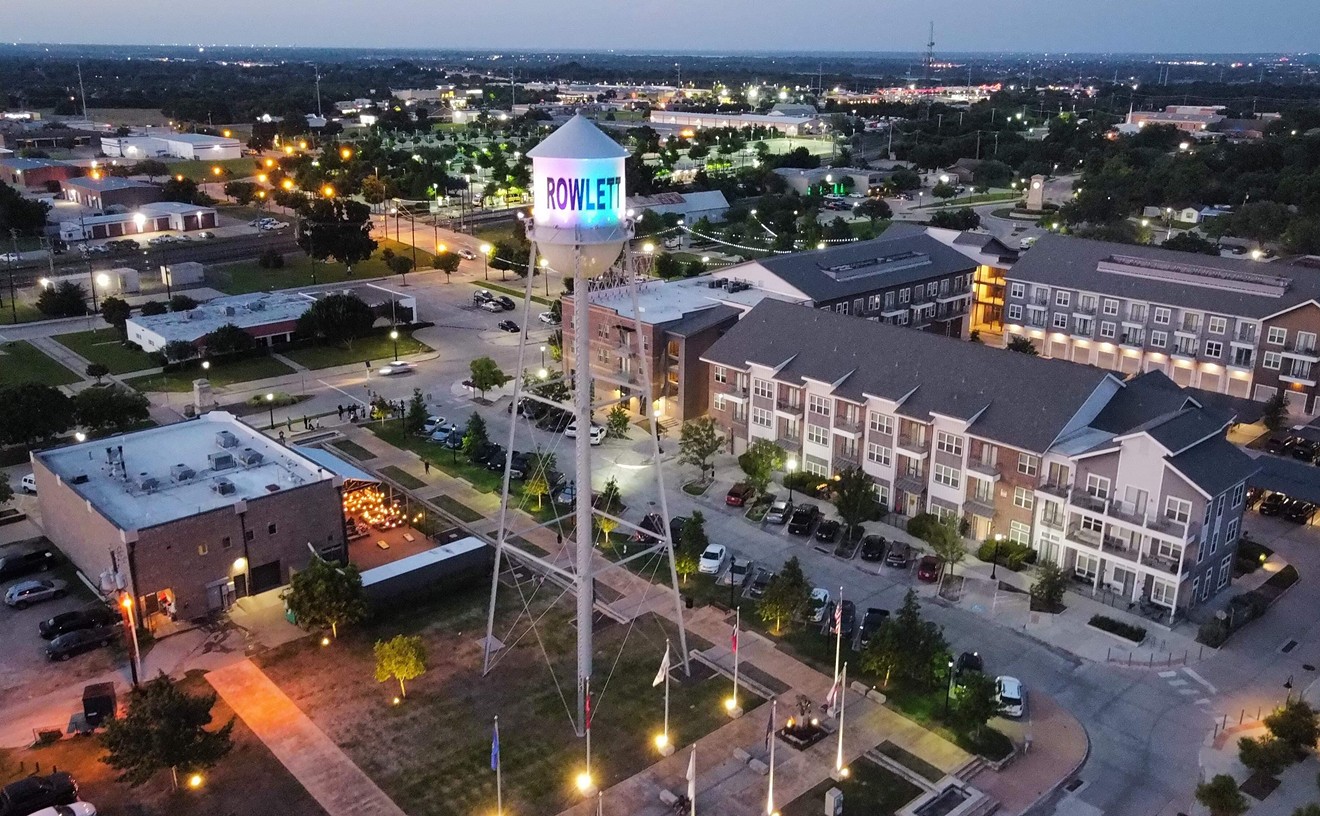In March, Amacher moved from a spacious office in College Hall, noted for its celestial blue carpeting, arched cathedral ceiling, and custom hardwood bookcases, into a plain vanilla one about a third its size located in the economics department in the College of Business.
Amacher, who had been president for two-and-a-half years, abruptly resigned in March in the midst of a UT system audit and accusations of extravagant spending and cronyism. The resignation came just weeks before the faculty was scheduled to take a vote of confidence--a vote no one expected him to pass. Provost Dalmas Taylor, Amacher's second-in-command, was asked to resign soon after.
Amacher will stay on as special advisor to interim President Robert Witt, says UT System Vice Chancellor Jim Duncan, until August 31, when Amacher plans to take a year-long paid leave of absence.
For many, Amacher's lavish offices were the perfect symbol of the president's penchant for high living and a management style that flew in the face of what they believed to be UTA's purpose.
His new office in the economics department is workaday--the only refurbishing the university paid for was a carpet shampoo and a fresh coat of white paint on the walls, according to Bob Martin, chairman of the economics department. For furnishings, Amacher has traded his floor-to-ceiling bookshelves and top-of-the-line modular furniture for a desk and chairs borrowed from a supportive UTA alum. "It looks like any other standard office," Martin says. "In fact, if I had hired any other economics professor I would have probably had to do more to it."
But aside from the office comedown, the deposed president will land very softly, thanks to a golden parachute. Amacher will keep his $155,000 a year salary, plus $5,700 a month in car and housing allowances, and retain his membership in Arlington's Shady Valley Golf Club until September 1. His Arlington horse farm is up for sale, Duncan confirms.
How long Amacher and his wife, Susan, will stay in Dallas is unclear, says Duncan. Amacher did not return Observer calls for comment. Amacher's administrative leave begins in September and Amacher has told some reporters he plans to travel to Montana and join an environmental think tank--all while continuing to pull in UTA's $155,000 salary. The housing and car allowance and golf membership, however, will cease September 1, says Duncan.
A $250,000 life insurance policy that the UT System purchased for Amacher and has been paying off in yearly premiums of $20,000 will be "substantially reduced," Duncan says, to a policy appropriate to Amacher's new position as a tenured economics professor. When he returns from his year off, Amacher will draw a salary of $90,000, one of the highest salaries in the department. (Duncan expects Amacher's salary will be adjusted upward a few thousand dollars to reflect a standard raise.) Ironcially, Amacher will be earning about the same amount as his former assistant, Roger Meiners, whom he brought from Clemson University. After Amacher resigned, Meiners continued at UTA as a tenured economics professor at $95,000 a year.
As reported in an Observer cover story Jan. 12, 1995, under Amacher's reign, spending for entertainment and travel more than doubled from the previous administration. Spending on intercollegiate athletics also skyrocketed. A 1994 trip to a basketball tournament in Hawaii for the president, provost, their wives, and eight other administrators and UTA employees cost the school $52,000. When Amacher stepped down, the sports department had a deficit of more than $2.4 million.
The Observer story, coming after more than a year of complaints from students and faculty and numerous critical articles in the student newspaper, triggered an audit.
UT system auditors, who released results of their three-month fiscal and management audit in June, blasted Amacher's management style, saying his move to new offices "physically isolated him" from the campus and "further alienated the existing leadership and management from the President and reinforced the environment of caution and distrust..."
It criticized his decision to hire as athletic director B.J. Skelton, a friend and former colleague from Clemson University where Amacher had been dean of the College of Commerce and Industry. The audit said that although Skelton was not qualified to be athletic director, Amacher hired him anyway and paid him a salary that was 140 percent more than that of the past athletic director.
"Adequate controls over entertainment, travel, and related disbursements within the athletic department do not exist," the report says. "This has resulted in payments by the University for personal charges and other expenses with no clear benefit to the University."
University officials reimbursed the school $6,400 in personal charges as a result of the audit. Of that, $1,254 was personal charges incurred by Amacher.
The audit criticized him for hiring an outside contractor to restructure UTA's Continuing Education program--which was in the red more than $800,000. Amacher paid the consultant $30,000 for research, the audit says, while "no research reports, progress reports, meetings summaries, or other written work products have been produced to substantiate the services for which the consultant was paid."
The auditors also criticized Amacher for failing to seek outside bids for redecorating his presidential offices. Instead he hired without a contract an Arizona interior designer, whom he paid $15,000 to redo his office and other rooms on campus, and reimbursed her for more than $17,000 for furniture she purchased, although she did not provide the university with proper receipts.
"Amacher's decision to hire these consultants and to be solely responsible for monitoring performance and approving payments...circumvented the standard process..." the audit says, adding that Amacher's failure to examine or require adequate documentation to support reimbursement requests resulted in UTA paying for the designer's husband's airfare to Arlington on one occasion.
The auditors criticized Amacher's poor communication with deans and department chairs on important issues such as budgets and said the president's decision to remove control over budgets, spending, and even hiring from each department and give it to Provost Taylor created such red tape that it "prevented the University from moving forward in a number of basic program areas...and hampered the ability of departments to resolve routine operational issues."
It criticized the way Amacher fired the dean of business (one of more than a dozen firings and resignations under Amacher), saying, "the manner in which the president chose to handle this situation reflected...a management style characterized by retaliation and intimidation as opposed to fairness, rationality and due process."
Though Amacher was touted when hired as an expert in economics with a reputation for schmoozing contributors and alumni to garner outside money, the auditors accused him of not understanding the money side of the university.
"The administration failed to identify and/or respond in a timely manner to significant financial problems in other areas, specifically intercollegiate athletics, continuing education and university annual fund, for which the president has direct responsibility..."
"The manner in which the President chose to handle this situation reflected a management style characterized by retaliation and intimidation."
"Amacher's decision to hire these consultants circumvented the standard process.










